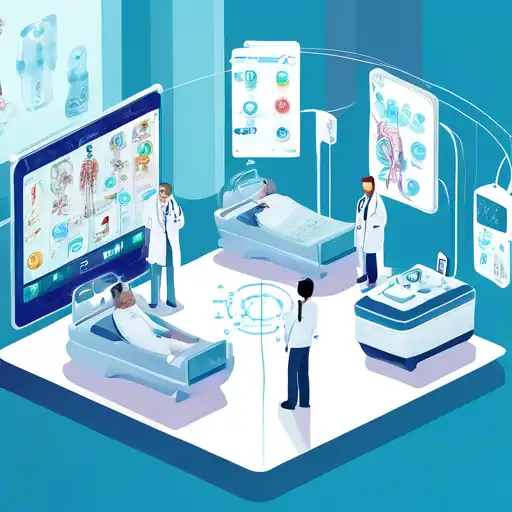Introduction to IoT in Healthcare
The integration of the Internet of Things (IoT) into healthcare is transforming the industry in unprecedented ways. From remote monitoring to smart sensors and medical device integration, IoT is making healthcare more efficient, personalized, and accessible. This article explores the groundbreaking impact of IoT on healthcare, highlighting key benefits, challenges, and future prospects.
The Impact of IoT on Patient Care
IoT technology has significantly improved patient care by enabling real-time monitoring and data collection. Wearable devices, for example, can track vital signs such as heart rate, blood pressure, and oxygen levels, allowing healthcare providers to monitor patients remotely. This not only enhances patient comfort but also reduces the need for hospital visits, lowering healthcare costs.
Key Benefits of IoT in Healthcare
- Improved Patient Outcomes: Continuous monitoring leads to early detection of potential health issues.
- Enhanced Efficiency: Automating routine tasks frees up healthcare professionals to focus on critical care.
- Cost Reduction: Remote monitoring reduces hospital readmissions and unnecessary visits.
- Personalized Treatment: Data collected from IoT devices can be used to tailor treatments to individual patients.
Challenges and Considerations
Despite its benefits, the adoption of IoT in healthcare comes with challenges. Data security and privacy are major concerns, as sensitive patient information is transmitted over networks. Ensuring the reliability and accuracy of IoT devices is also crucial to prevent misdiagnosis or treatment errors.
Overcoming IoT Challenges
To address these challenges, healthcare providers must implement robust cybersecurity measures and adhere to strict data protection regulations. Additionally, continuous testing and validation of IoT devices are essential to maintain their accuracy and reliability.
The Future of IoT in Healthcare
The potential of IoT in healthcare is vast, with future advancements expected to bring even more innovative solutions. From AI-powered diagnostics to blockchain for secure data sharing, the possibilities are endless. As technology evolves, IoT will continue to play a pivotal role in shaping the future of healthcare.
For more insights into how technology is transforming healthcare, explore our articles on Digital Health Records and AI in Healthcare.
Conclusion
IoT in healthcare is indeed a game changer, offering numerous benefits that improve patient care, enhance efficiency, and reduce costs. While challenges exist, the continuous advancement of technology and adherence to best practices can overcome these hurdles. The future of healthcare is bright, with IoT leading the way towards a more connected and efficient system.
